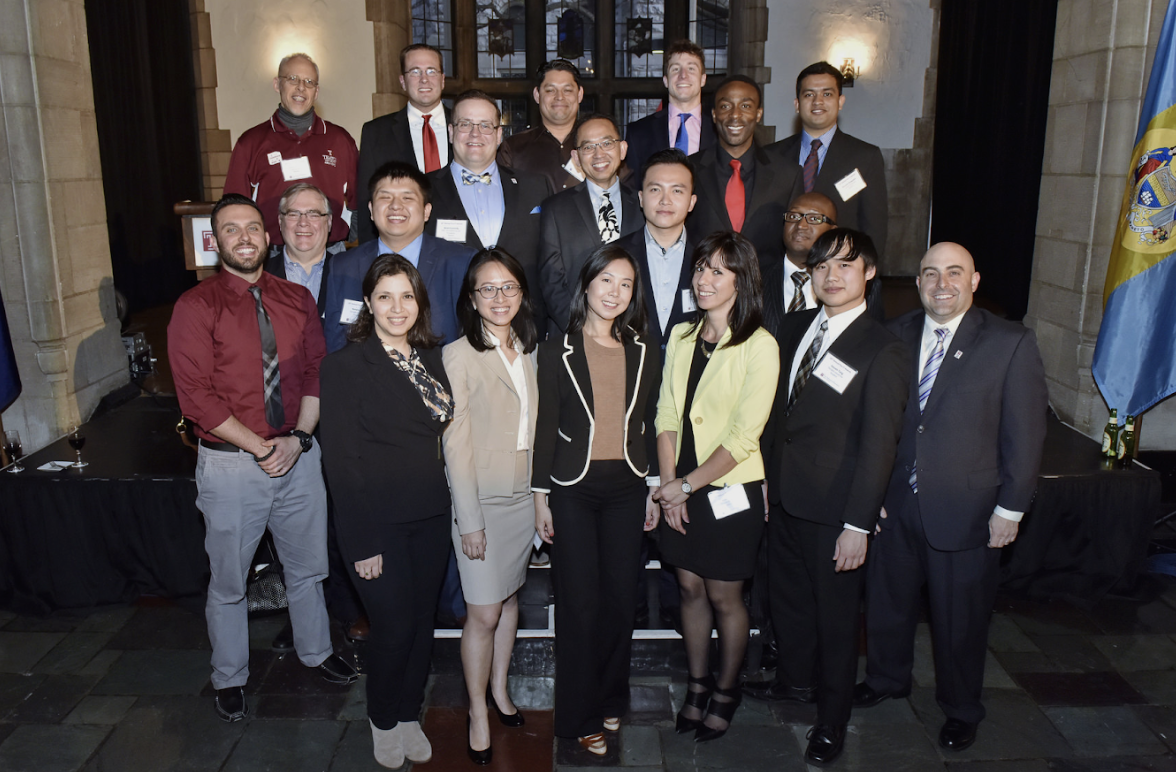“Every day we are hearing about a breach,” says Temple alum Fred Zajac. “People in this profession are so necessary.”
Zajac started off his career as an 18-year-old serving in the civil affairs unit as part of Operation Iraqi Freedom. Today, he’s a certified information systems auditor (CISA) and system security analyst with Sabre Systems Inc.
Shahla Raei, originally from Iran, was trained as a software engineer. Today she’s a CISA and senior IT auditor at Wells Fargo in Philadelphia.
Both Zajak and Raei credit the education they received at Temple University’s Master of Science in Information Technology, Auditing and Cyber-Security (ITACS) program for being able to move into new careers in IT Auditing.
Learn more about Temple ITACS“I transformed myself,” said Zajac. “I went from a sales guy who was really unmotivated to a technical specialist able to help medical supply companies understand how to protect their data. I’m having fun at my job, and my instructors at Temple taught me how to do it.”
In demand
Now more than ever, cybersecurity is vital. With heightened privacy concerns and major threats to data, companies are increasingly moving to invest in cybersecurity specialists. According to a 2018 report by global IT security group Thales, 67 percent of global enterprises have now been breached. At the same time, there is a huge shortage of trained workers to enter these positions, with a projected 1.8 million unfilled roles by 2022.
ITACS Program Director David Lanter said the ITACS program’s greatest achievement is the successes of its students after graduation.
“They’re working in careers to protect businesses’ sensitive data and mission-critical information systems,” said Lanter.
The secret sauce behind the ITACS Program’s successes?
Students are taught by seasoned industry professionals who work in the field: “They all have real experience,” said Raei, who graduated in August 2017. “All the professors work in the industry as IT audit directors, chief information security officers, risk managers and cybersecurity specialists.”
“We have top guys from Vanguard, Federal Reserve Bank, Homeland Security and other places with extensive IT auditing and cybersecurity responsibilities teaching us,” Zajac said. “They teach us the real-deal stuff, hands-on skills. It’s a lot of fun, and very practical. We’re involved in challenges, including the National Cyber Analyst Challenge, ISACA scholarship competitions and Philly Tech Week.”
Creating cybersecurity professionals
Professors working in the IT audit and cybersecurity fields also come in handy when it’s time to apply for jobs.
“Having professors working in the industry means good connections and excellent guidance, which helps directly with job searching,” said Raei.
Before graduating, ITACS students undergo an intensive career-readiness program through Temple’s Center for Student Professional Development.
“They helped me with my resume and interview skills and provided practice, which gave me confidence when interviewing,” said Raei. “They even helped me with English, which is my second language.”
Raei values the connections and friendships she made through the ITACS program. She continues to stay in touch with instructors and students she met, who are now part of her ever-expanding professional network.
“I met people from so many different backgrounds, and from all over the world,” she said. “I really enjoyed it because I was new to the country, and I met so many people at Temple.”
The Temple ITACS program is designed with flexibility in mind — full-time students finish the ITACS degree program in just 11 months and part-time students in two years. Students are offered the choice of completing the courses 100 percent online, in the classroom, or a combination as desired.
Learn more about Temple ITACS






